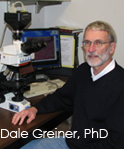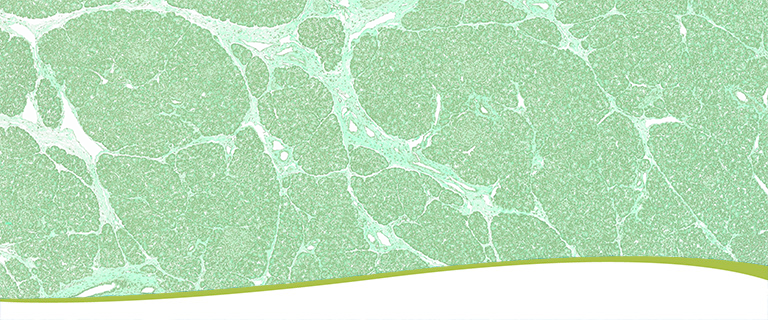Investigator Spotlight: Humanizing the Mouse for nPOD Tissue Engraftment
by Nicole N. Parker
Dr. Dale Greiner of the University of Massachusetts School of Medicine has been collaborating with Dr. Len Shultz, of the Jackson Laboratory, for over 25 years. He and Dr. Shultz have developed a mouse model for human type I diabetes (T1D). This “humanized mouse” model is a severely immunodeficient mouse strain with the gene for the Interleukin-2 (IL-2) receptor common gamma-chain knocked out. This model is significant 
because it allows functions of a human immune system to be studied in a mouse model with almost no immune system of its own. Over the past few years the humanized mouse has become the premier host for efficient engraftment of human cells and tissues. Human cells, such as spleen cells from donors, through the nPOD program, can be engrafted into this mouse and will result in characteristics of human T1D: inflammation of the pancreatic islets , which contain the insulin-producing beta cells of the body; human antibodies raised against the mouse’s beta cells; and partial destruction of these beta cells due to islet inflammation. This is a major research tool because of the relative ease in which the human immune system can be studied, and due to the close resemblance of this model to human Type I diabetes.
The humanized mouse model can also be highly specified for optimization of individualized clinical therapies and regimens. By modifying certain target 
sites on mouse beta cells to mimic the sites of human beta cells, a panel of humanized mice can be used to investigate methods for halting beta cell destruction following injection of peripheral blood lymphocytes from human T1D patients. This would be minimally invasive to the patient, requiring only a blood draw. However, this experimental model system and the humanized mouse model would not be possible without the development of the nPOD program, which procures and distributes human tissues to T1D investigators. Dr. Greiner has described his experience with the nPOD program as “simply outstanding.” nPOD has facilitated the collaboration of many T1D investigators as well as emphasized the importance of tissue and organ donations. Such a partnership helps drive research and understanding of the T1D autoimmune mechanism.
